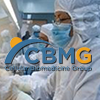pSivida shares hit new high on plans to file for European drug approval.
Shares of pSivida Corp. hit a new high this morning on its plans to apply for approval of a drug and device in Europe based on strong late-stage trial data announced last week, and CEO Paul Ashton says he’s hopeful that U.S. regulators might consider doing the same.
Watertown biotech pSivida (Nasdaq: PSDV) announced this morning that recent meeting notes received from the U.K. Medicines and Healthcare Products Regulatory Agency suggested the agency would be open to an application for approval of Medidur, its treatment for posterior uveitis, based on “statistically compelling and clinically relevant results from just one pivotal trial.” The treatment consists of a tiny tube-shaped drug delivery device that can be inserted using a needle. The tube slowly administers a steroid over the course of up to three years, and would replace the current method of frequently injecting the steroid into the eye.
In an interview today, Ashton said he believes Phase 3 trial results announced last week are indeed “statistically compelling.” In fact, the 127-patient trial showed such a difference in the rate of recurrence of the disease between those who were administered Medidur and those who got a placebo that it’s almost a statistical certainty that the trial results are due to the drugs’ effectiveness, and not luck. “I’ve never seen results like that before,” said Ashton.
Those results caused a 28 percent stock hike last week, and today’s announcement of plans to file for approval in Europe in the second half of 2016 spurred another 8 percent increase to $4.73. That’s higher than any of the company's end-of-day stock values since September 2014.
But Ashton said today that he’s hoping the stellar trial results might also mean his company could apply for U.S. approval earlier than planned, too. He said he plans to meet with the Food and Drug Administration in coming months to discuss that possibility, which would mean a potential application earlier than current plans to submit in 2017. A second Phase 3 trial of Medidur is already underway, but he said the company may not need to wait for the results if the FDA agrees that the results from the first one are statistically compelling.
The U.S. approval would be key for the 30-employee company, which plans to market and sell Medidur in the U.S. on its own (Ashton says he’s considering potential partners to market the drug in Europe). That would be a first for the company, which has already gotten one drug approval (Iluvien, which is very similar to Medidur but for diabetic macular edema) in partnership with Alpharetta, Georgia-based Alimera Sciences.
The chance for pSivida to have its first wholly owned drug approved sooner in the U.S. would be a huge boon to investors. Ashton says that while the market for posterior uveitis, which affects about 175,000 people in the U.S., is smaller than that for diabetic macular edema, there are fewer good treatments available for the condition.
BLOG COMMENTS POWERED BY DISQUS


